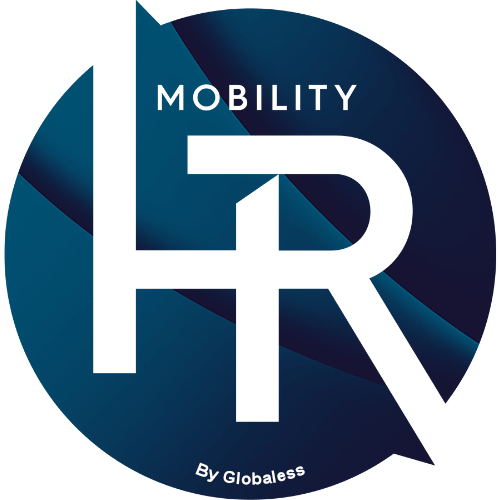While the end of summer marks the return to work or school for most of us, expatriates are not left out. They often organise their end of assignment abroad on this calendar to fit in with their children’s schooling.
It is unanimously shared by both Human Resources teams and the expatriates themselves that this phase remains delicate. However, despite a consensus on this observation, companies still provide very little support when returning from an assignment abroad.
Some even refer to this stage as the primary issue of International Mobility.
While companies provide a wealth of services (intercultural training, language courses, reconnaissance trips, relocation agencies, etc.) when the expatriate leaves for another country, no one, whether in the department of departure or in the department that will welcome the expatriate back, perceives this transition as a critical issue justifying the financing of support measures for reintegration into the country of departure, despite the proven difficulties.
Management itself sometimes takes shortcuts by treating the return as a logistical transition of a few days.
Let’s beware of this short termist view since mobility, especially international mobility, amplifies everything (emotional management, self-esteem, confidence, fear, relationship with others, etc.).
In fact, returning from abroad is a real life transition: change of professional/social/sensory environment (landscapes, smells, …) / rhythm / language … .
Some professionals have described in detail the difficult experience of the expatriate on return as «reverse culture shock».
On the face of it, there is no need for nursing for expatriates and their families returning to the country they know. However, many of them no longer feel at home, often displaying the same symptoms: disorientation, feelings of loneliness and abandonment, lack of understanding, lack of recognition of the international experience, anxiety about the administrative complexity and the tense property market, the desire to go back abroad, or even depression, especially in a very changing world.
Expected as the Messiah in the host country, the employee has benefited from a comfortable package (bonuses, benefits in kind) on departure. When they return, they realise that they are not necessarily expected.
Far from the «honeymoon» experienced by the discoveries in the host country, the expatriate finds himself in a situation that is all the more anxiety-provoking since he feels lost in his own country where he cannot find his bearings.
For the expatriate, these feelings are unexpected and brutal, sometimes leading to irritability. On the HR side, although known, the extent of the phenomenon remains underestimated, leaving the image of the ostrich in the air according to some expatriates.
Whether professional or personal, these networks do not measure how each person has evolved outside of France (changes in the way of thinking, reacting, working).
A gap is created between what the person has become and what those around him or her expect, such as an adult having to return to live with his or her parents.
We would like to take advantage of this back-to-school period to give you a few keys and recommendations for successful returns from international missions.
Human Resources specialists, you can share them with your expatriates.
Although each story is unique, this is common sense advice that can be adapted to everyone’s experience and personality in the form of 10 golden rules.
- Clearly define your initial motivations.
They determine the success of the return. Beware of flight, if going abroad allows to get out of a situation, it is likely to exist for some time years later or even tenfold. Imagine the demand for international mobility
by an employee who was tired of Sunday visits to his mother-in-law. It is likely that that this elderly lady has not changed 4-5 years later, or even is increasingly dependent and less easy to live with.
- Maintain contact with Human Resources in the Home Country throughout the assignment in the Host Country and inform them of the new responsibilities and skills acquired during the assignment abroad.
Before the expatriation, the employee meets with the Human Resources department on several occasions in order to establish all the conditions of his or her mobility (contract, remuneration, support measures, social security coverage, taxation, spouse’s activity, children’s schooling, etc.). Sometimes the spouse takes part in these meetings, providing the employer with a great deal of information about the employee’s private life. A more personal relationship is formed with future expatriates. Several years later, the HR team of the transferring entity may have changed. The new contacts have less detailed knowledge of expatriate employees, and even less of the new skills developed in the country of assignment. They will not necessarily think of them when changing organisation. Also, to counter the adage «out of sight, out of mind», suggest to your expatriates that they maintain a regular link with you, even if there are no specific problems. This can be as simple as coming for a cup of coffee every time they return to France during their annual leave.
- Keeping abreast of organisational changes in the Country of Origin via a mentor.
When the new positions and responsibilities are communicated, all bets are off. It is important to be aware of future organisational changes and available positions. Some companies set up a mentoring procedure. Each expatriate is assigned a sort of sponsor called a «mentor». This colleague is based in the country of departure, if possible outside the hierarchy, in order to promote trust between the two parties, impartiality and neutrality in exchanges on developments in the entity of departure, the state of mind of the employees, in short all types of sensitive information, relevant to the project and which cannot be written down.
- Maintain quality links with its network.
Every organisation evolves regularly. The highest or most interesting positions available are rarely advertised in advance, especially in our French culture, which places a premium on the implicit. In this context, beyond the mentor, it will be essential for your employees to keep in regular contact with the people close to them. This is because they will be able to share more information.
- To inform HR in the country of origin of their plans to return 6 to 8 months before the end of the mission
International mobilities do not always coincide with the duration indicated in the contract expatriation. The employee may complete the project before the deadline or the employee may be renewed with new assignments. Encourage your employees to anticipate the end of the contract of the expatriation and to contact their home HR several months before the arrival of the deadline. This will allow you to take the time to find the right job for the employee back.
- Knowing how to «decontextualise» one’s experience to turn it into a skill and demonstrate its added value in a new mission
In interviews preparing the return, the employee will tend to describe his or her activities as factual manner. Being fluent in Japanese is not necessarily relevant to a position in the provinces of France. On the other hand, demonstrating the ability to adapt because they have quickly become comfortable in another language, another culture can be transposed into any situation. The expatriate should focus on developing skills rather than actions.
- Carry out a self-assessment: reflect on what you have learnt, your transferable skills, your validated operational know-how.
Each expatriate will be able to individually introspect through a simple assessment before any interview to consider your future position. There is no need for a high-level coach.
Suggest that they fill in the table below called the STAR Matrix (Situation – Tasks / Talents- Actions – Results) :
|
What situation did I find myself in? Describes the context to give the interlocutor a global view – … – … – … |
What Tasks need to be done? Identifies the tasks and objectives to be achieved
What talents did I have to mobilise? Designates talent to achieve objectives – … – … – …
|
|
What actions have I taken? Corresponds to all the actions carried out to achieve the tasks
– … – … – … |
What results did I achieve? Highlights the results and effects of your actions and mentions figures
– … – … – …
|
It is not enough to have developed skills; they must also be transferable to the new environment. The same applies to operational know-how. The employee must be able to illustrate how he/she applied them and the results obtained.
In this way, the story of the journey will become more dense and convincing to the interviewer.
- Mourning the loss of income and autonomy
An employee sent abroad at the request of his or her employer receives a higher remuneration than in the country of departure. These emoluments compensate for the distance from his social network (family, friends, work colleagues) as well as the necessary adaptation to a different cultural and professional environment. In addition, there are bonuses to cover less comfortable living conditions (climate, lack of recreation / public services/ consumer products consumption, …). Finally, many benefits in kind (schooling of children in very good schools) are available. These packages are complemented by a range of services (e.g. accommodation, house staff, car, etc.). On return, these incentives will disappear with no guarantee of promotion and/or increase salary
If the employee does not detach himself from his lifestyle in the country of assignment, his demotivation will grow. Similarly, expatriates often have more autonomy away from headquarters. Therefore, they will have to accept a more hierarchical culture in order to avoid frustration.
- Knowing how to establish a relationship before imposing one’s views on one’s experience in the host country
Let’s evoke the employee who has returned from Australia and who likes to describe his daily surfing evenings from 5pm. This will make his colleagues dream for a few days, but it can quickly become boring for people whose culture of working at night shows great professional commitment. Several years later, new colleagues have joined the company. Getting to know them, finding out what makes them tick before monopolising attention, will make it easier to share common interests and integrate.
- And why not call on a coach
If, in spite of these recipes, you still have moments of spleen, good news: there are solutions exist. Indeed, some coaches have specialised in preparing employees for the return before this and then accompany them back to their country of departure.
Whatever the recommendation, anticipation remains the key word throughout the mission.
These actions by your employees should be complemented by your posture.
It will require coordination between the Human Resources departments of the home and host countries, as well as between the International Mobility and Talent Management departments.
For exchanges between HR managers in the countries of origin and host countries, when expatriates reach a significant volume, this can be done via telephone conferences or monthly visios with updates on expatriates due to finish their assignment within 6 months.
For companies with fewer employees on international transfers, this sharing will take place during joint annual salary reviews in order to understand both the new skills developed and to anticipate returns and assignment projections.
These tips are simple to implement. So HR professionals, move from incantation to action for a win-win situation.


